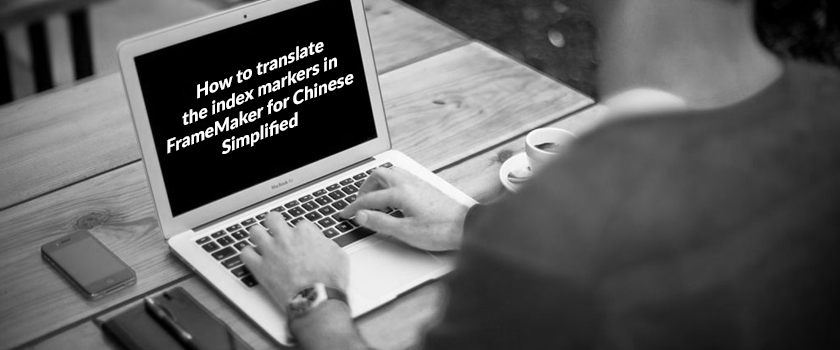When translating the FrameMaker document into Chinese Simplified, you need to translate the index markers with a special code, so when the localized index is generated, it will automatically sort each entries into the correct categories.
English source index marker looks like:
| FrameMaker file | STF file |
| Storage:how images are stored | Storage
how images are stored |
When this is translated, without considering the sort, it will look like:
| FrameMaker file | STF file |
| 存储:图像的存储方法 | 存储
图像的存储方法 |
When the index is generated with above translation, all the entries will be sorted by character code order, with all the entries starting in Chinese characters sorted after ones starting with English alphabets.
To overcome this, you need to insert a command called sort order. This is done by placing a alphabet in front of the first level index text, between the brackets in FrameMaker, or after the <:so> command in STF file.
Read Also: Chinese place names’ pronunciation in Japanese
Translated index text with correct sort order will look like:
| FrameMaker file | STF file |
| 存储:图像的存储方法[c存储:图像的存储方法] | 存储<:so> c存储
图像的存储方法<:so>图像的存储方法 |
For the first level index text, characters “c” is placed in front of “存储”, so “存储” will be placed under “C” in the generated index. Then you copy the index text into the sort order. There is a no space between “c” and “存储”. Nothing will be added to lower level index text, just copy the contents.
This will be done for all the index markers with first level text starting with Chinese character or any double byte character. If the first level index text starts with an alphabet, number, or single byte symbols ($, #, @, ect) do NOT put in the sort order. Just translate the index as in second table.
With all the index markers translated as above format, index will generate in correct sort categories.
Take a look at how we helped our client by localizing their project for Chinese language. Click here to read the complete case study



